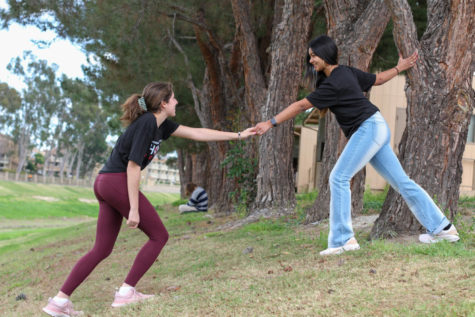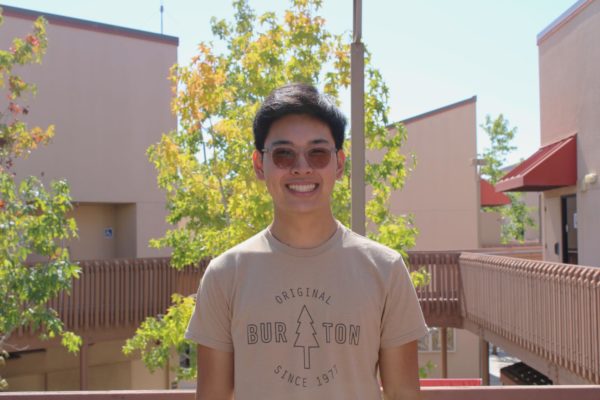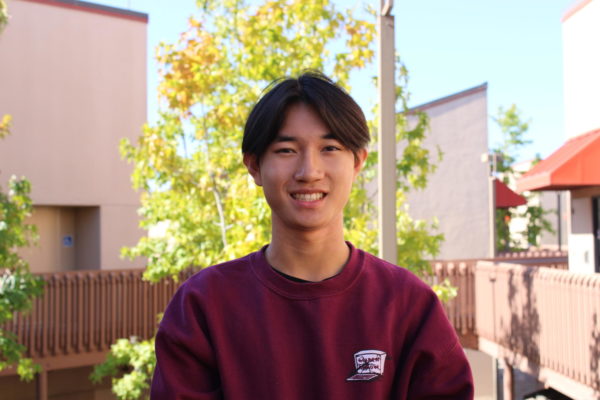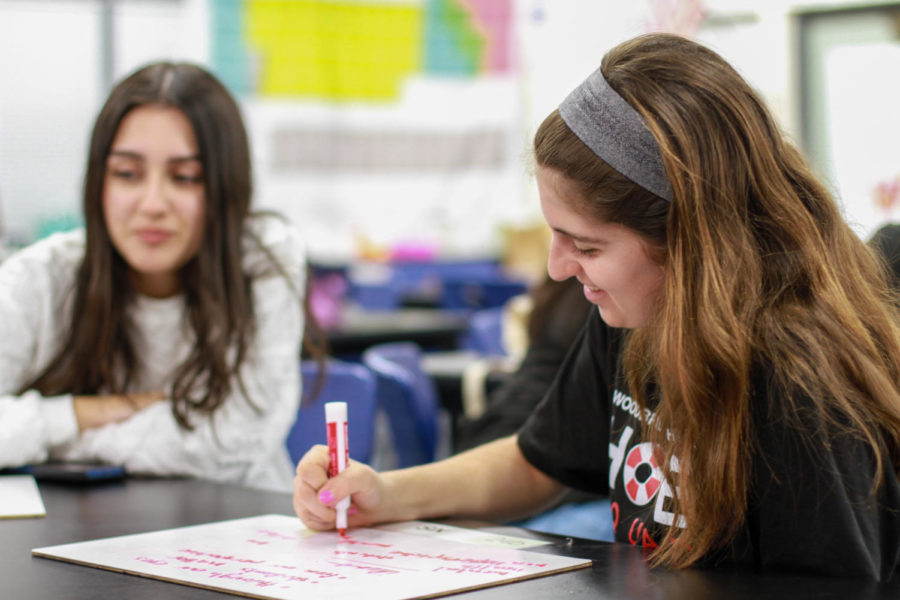Hope Week Returns to Raise Mental Health Awareness, Amid Ongoing Research and Post-Pandemic Challenges
Following Covid-19, the Hope Squad serves a unique role in combatting student burnout and mental health concerns
Hope Squad member sophomore Haley Ferguson jots down ideas during a presentation during one of their meetings.
Disclaimer: This article mentions suicide and depression. If you or someone you know needs mental health support, please reach out to the National Suicide Prevention Hotline by calling or texting 988.
From March 13 to March 17, Woodbridge High’s Hope Squad launched their annual Hope Week—a one-week mental health campaign facilitated through lunch activities, scavenger hunts and mental health education videos—to reduce mental health stigma, promote positivity and empathy and raise awareness for available support.
Woodbridge High’s Hope Squad, a group of 25 students nominated by their peers, is part of the national Hope Squad organization, which aims to “prevent suicide through public awareness and education, reduce stigma, and serve as a resource to those touched by suicide,” according to the Hope Squad website.
This year’s Hope Week comes amid new youth mental health reports on the national level, largely shaped by post-pandemic struggles.
According to the U.S. Surgeon General’s Advisory, “Recent research covering 80,000 youth found that depressive and anxiety symptoms doubled during the pandemic, with 25% of youth experiencing depressive symptoms and 20% experiencing anxiety symptoms.”
Woodbridge High’s Mental Health Specialist and Hope Squad advisor Megan Humphreys regularly meets with students on campus and notes similar trends, which she attributes to a variety of factors.
“I would say at least in the past couple years, we’ve definitely seen an increase in anxiety and depression and people struggling,” Humphreys said. “I think there’s a lot of reasons for the increase. For one, we can look at life in terms of our culture, where we are always striving and never stopping, which leads to people struggling to take care of themselves. I also think that with the state of the world, there’s always something that is scary going on or challenging that we are kind of hit within the media on a consistent basis. And then, thinking about college admissions, it is hard when we have setbacks or we don’t get the grade we want, because it can be seen as affecting students’ whole future. It is really hard to be feeling like that for so many years.”
All of these factors continue to impact the mission of Woodbridge High’s Hope Squad and have renewed the push for youth mental health support.
For example, since 2020, the Hope Squad has extended their outreach to virtual platforms, allowing students to connect with peer mentors online. Additionally, Hope Squad members have participated in a statewide competition titled Directing Change, where groups submit 60-second mental health public service announcements to reduce stigma and increase information regarding suicide prevention.
Sophomore Haley Ferguson has been a Hope Squad member since 2021. Initially motivated to join due to her passion for mental health and helping her peers, Ferguson has been actively supporting and connecting with peers on campus, looking out for signs of suicide and for any students who are struggling. Ferguson recognizes this is an active role and there are always more students to reach out to.
“I do believe that there are a lot of students who do need help, but are sometimes hesitant when this happens,” Ferguson said. “In Hope Squad, we work on how to approach different situations and how to ask in a way where it goes beyond what we see as the surface level of needs.”
This seemingly disparate relationship between students who need support and students who reach out is not isolated to the Woodbridge High campus.
According to Mental Health America (MHA)*, in January 2023, “The national average of untreated youth with depression was 59.8%, with 69.5% in California. Even in states with the greatest access, nearly one in three are going without treatment.”
MHA’s 2022 report found similar results measuring rates of untreated mental illness, indicating the ongoing need to actively reach out to students on campus.
So why are these rates so high? Among the various factors Humphreys described earlier, she also notes social media as a likely cause.
“Social media’s emphasis on perfectionism where we see other people’s highlights causes us to start comparing ourselves to this curated image that other people are portraying about themselves,” Humphreys said. “Additionally, when we are on our phones, it’s releasing our dopamine and when we’re off our screens, we’re actually becoming depressed. This dopamine rush creates this addictive pattern.”
Humphreys is not alone in this assessment. In an interview with CBS News aired in Jan. 2023, the U.S. Surgeon General, Vivek Murthy, offered a similar perspective.
“Many of the algorithms used by social media and more broadly by the web, will direct kids often toward content that may not be helpful, and in fact harmful, to their mental health and well-being,” Murthy said.
Murthy even went so far as to say that age 13 is “too early” to join social media, as kids are still “developing their identity.”
Junior Ferhat Ansari is an avid social media user and has similar experiences. She advises her peers to use social media in moderation.
“Whenever you are on social media, you tend to compare yourself to a lot of people. We will say, ‘Oh my gosh, look, they have a better life than me. They have so many more facilities than me.’ It creates a very stressful environment,” Ansari said. “So that is why we should use it wisely. We should try to live our lives and enjoy every moment, instead of wasting our time on social media.”

Despite the challenges posed by 21st century society, Humphreys encourages students to resort to the more traditional means of relaxation and self-care.
“Getting outside and getting fresh air to even just take a deep breath, will help students to reduce that stress without getting that dopamine hit and entering into the cycle of addiction,” Humphreys said.
Ansari agrees and encourages her peers to prioritize their own mental health, rather than investing so much in the lives of others.
“Your mental health matters. It’s really important. Try your best to talk with someone or a friend if you’re struggling,” Ansari said. “And of course, remember to love yourself. Loving yourself is so much more important than comparing yourself to things or others.”
To learn more about Hope Squad’s efforts to raise mental health and suicide prevention awareness or to seek mental health resources, visit https://hopesquad.com or follow their Instagram account @whs_hopesquad.
*MHA is a non-profit organization seeking to expand mental health identification, intervention and support nationwide.
Your donation will support the student journalists of Woodbridge High School. Your contribution will allow us to purchase equipment and cover our annual website hosting costs.

Hi Warriors! I'm Brandon and this will be my fourth and final year in journalism. I am so honored to lead our magazine this year and carry out our vision...

Hey Warriors! My name is Ocean Pham and I am excited to continue my second year as a photo editor! I hope to share my skill in photography in our issues...








